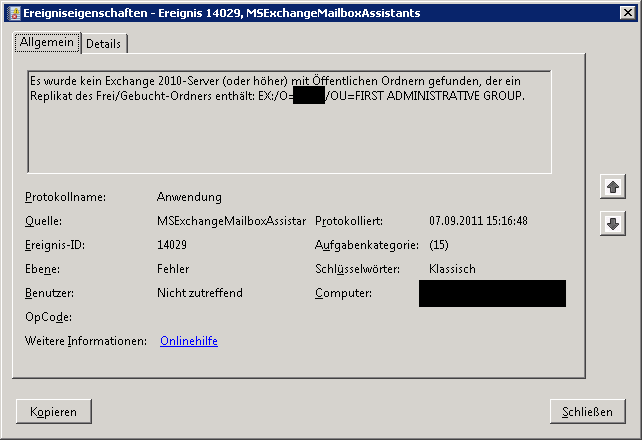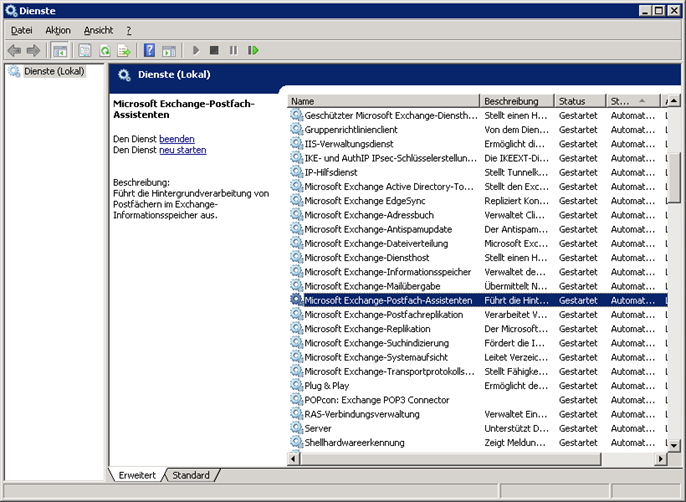When migrating from Exchange 2003 to Exchange 2010, there are often problems with the replication of public folders. However, I have frequently encountered problems with the replication of the free/busy times of Exchange. Exchange also reports this with an error in the event log of the Exchange 2010 server. The following event log entry describes the problem:

Event ID: 14029
Source: MSExchangeMailboxAssistants
Description: No Exchange 2010 server (or higher) with public folders containing a replica of the free/busy folder was found: EX:/O=Exchange Organization/OU=First Administrative Group.
However, in most environments Exchange correctly displayed the replication partners for the public folder "SCHEDULE+ FREE BUSY". The Exchange 2003 and Exchange 2010 servers were visible in the replication list. The replicas were created on the Exchange 2003 server in this situation. All public folders were replicated correctly, with the exception of the free/busy folder.
To solve the problem, I executed the following command on the Exchange Management Shell. Actually, this command only explicitly sets Exchange 2010 as the replication partner for the folder. However, I was able to solve the problem in all cases:
Set-PublicFolder -Replicas 'Name of PF database E2K10' -Identity '\NON_IPM_SUBTREE\SCHEDULE+ FREE BUSY\EX:/o=Exchange Organization/ou=First Administrative Group' | Get-publicfolder -Recurse '\Non_IPM_SubTree\SCHEDULE+ FREE BUSY\EX:/o=Exchange Organization/ou=First Administrative Group' | Format-List
The value behind "-Replicas" must correspond to the name of the public folder database on the Exchange 2010 server, the two values behind "o=" must each be supplemented by the name of the Exchange organization. I hope this helps you. Last but not least, I restarted the "Microsoft Exchange Mailbox Assistant" service.
Event ID 14029 used to occur every 15 minutes. After the command was executed and the service was restarted, the error no longer occurred.

Vielen vielen Dank. Jahre danach – hat es mir auch weitergeholfen !!
Ich liebe frankysweb !!!
Grüße aus Berlin
Danke, hat mir weiter geholfen.
Vielen Dank für die tollen Informationen auf dieser Seite! Bei uns hat der Befehl funktioniert, nachdem wir aus /ou=First Administrative Group /ou=ERSTE ADMINISTRATIVE GRUPPE gemacht haben.
Danke, Deine Web-Site hilft echt weiter!!!
Danke auch an Felix habe das > ‚ ‚ < auch übersehen
Grüße
Vielen Dank für den Hinweis, das hat mein Problem gelöst.
Es ist aber ein winziger Fehler in dem Skript:
‘Name der PF Datenbank E2K10′
Das > ′ ‘ <
Sonst bleibt das Powershellskript stehen.
Und fast genau ein Jahr später noch ein Danke – das gleiche Problem :)
Danke für die Info!! Hatte genau das gleiche Problem.